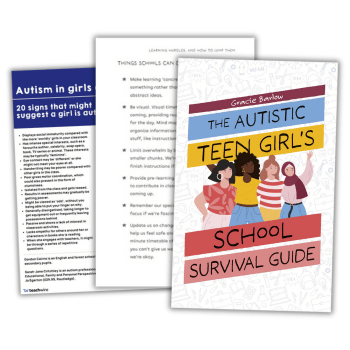SEND parents and angry emails – How to make peace with the keyboard warriors

Debby Elley explains how teachers can avoid combative exchanges with parents of children with SEND and build mutually beneficial partnerships

- by Debby Elley

As co-founder of the autism parenting magazine AuKids, I’ve seen many parent-teacher relationships disintegrate after a flurry of confrontational emails sent during moments of heightened tension.
These type of exchanges are more common than you might think. However, the question from a teacher’s viewpoint shouldn’t be, ‘How do I respond to them?’ but rather, ‘How do I stop these from landing in my inbox in the first place?’
The only route in
First, let’s consider why they happen. To illustrate this, I’ll share with you the event that came to inspire my current project. I’d offered to meet a local parent who’d told me she was desperate for help concerning her son’s mainstream schooling.
Our conversation began with her recalling how, “I asked Will what he learnt at school, and he told me he’d learnt that if he gritted his back teeth hard enough, it would stop him from crying.”
As a carer, what can you do when your protective instincts are mobilised so suddenly? When the school gates are closed, your only route in is via the computer keyboard.
This is the root cause of what I call ‘blazing keyboard syndrome’. I’ve urged parents who have contacted me to not succumb to BKS, but instead arrange a face-to- face meeting to better understand the full context and plan a way forward. And I believe it’s vital that teachers do the same.
Reactive responses
Upon receiving an upset and perhaps accusatory email from a parent, the immediate temptation may be to respond with a (hopefully reassuring) sound and logical defence. However, to do so would be to miss the subtext – namely ‘I’m upset and anxious. My child doesn’t feel safe or cared for at school.’
When parents say they don’t feel heard, it’s often because teachers are reactively responding to them on a case by case basis, rather than expressing an understanding of their underlying concerns.
Responding to such emails with yet more emails also establishes a precedent, whereby carers soon learn that if they want to discuss something urgently, typing works.
If you’d rather not form partnerships centred around these kinds of mismatched exchanges, avoid letting them become that way in the first place. Allowing emails to define your relationship with a family means that when things go wrong, you’re likely to receive an inbox of fireworks.
The keyboard can sometimes be a time-saver, but building a positive working relationship will save far more time, and do more to prevent further crises in the long-run.
Friendly ‘catch-ups’
It’s always a good idea to meet carers face-to-face from the outset, especially at the first sign of any problems.
This will help to familiarise you with their emotional landscape, including their past experiences with schools, and inform your understanding of what drives their approach to you.
Gareth D. Morewood was my son’s former SENCo, and is now educational advisor at the staff training and psychological services provider, Studio 3 – as well as my collaborator on the book Championing Your Autistic Teen at Secondary School. As a SENCo, Gareth got to know me in my capacity as a parent straight away, which later reaped rewards through the pooling of our experience to create a calm environment for my son.
We both managed to forge a productive partnership over the course of 15-minute chats at the end of the school day every month or so over a cup of tea. These weren’t ‘meetings’ – implying arduous, perhaps intimidating talks – but friendly ‘catch-ups’. Gareth ensured that together, we could predict potential difficulties and put strategies in place to avoid them, while noting what was going well and why.
This honest exchange of information helped forge a fruitful and trusting partnership, which inspired us to help others replicate it. By adopting a straightforward exchange involving face-to-face contact, you’ll soon find yourself operating more within the realm of collaboration than confrontation.
Anger at the system
If your parental counterparts don’t immediately embrace your ideas, don’t dismiss them as unhelpful collaborators. Remember that SEND parents may well be emotionally exhausted. By the time our children have reached secondary school age, we’ll have explained their difficulties in detail to countless educators and professionals, sat in numerous meetings, filled in lengthy, indecipherable forms and attended umpteen appointments.
Our energy and commitment can sometimes become depleted, and our trust eroded. Often, we’ll have gone to immense efforts that don’t amount to much. There may be fatigue, disillusionment or anger at the system as a whole.
Take time to really absorb that last paragraph. Be aware that you may not be starting with a blank canvas; you may need to paint over a dark background.
If a parent seems resistant to a particular proposal, try to unpack their reasoning. What’s happened in their past? Attempt to pick apart their fears. By addressing underlying concerns now, you’ll be more likely to avoid conflict in future.
‘There was an incident…’
Anger and anxiety can be flip-sides of the same coin. If a parent feels powerless to influence decision-making on behalf of their vulnerable youngster, either or both can become evident. Including parent input within your strategies will reduce that sense of powerlessness.
It also pays to be honest when mistakes are made. I’ve yet to hear from a single parent who’s been angry at a teacher for admitting a mistake. I’ve heard from many who were furious at mistakes being swept under the carpet, or blame being assigned to the wrong parties.
Being mindful of the language you use is also essential for avoiding conflict. Using the word ‘incident’ to denote a negative situation might seem well-meaning, but from a parent-carer’s perspective, it’s a term often associated with police cordons and flashing sirens.
If I heard a teacher use the word in relation to my child, the hairs on the back of my neck would rise. Careful phrasing can show that you’ve comprehended a young person’s distress and be far less inflammatory.
Instead of ‘There was an incident in which he lashed out at another student…’ try ‘Paul felt really upset and angry this morning because [insert situation], so we could do with chatting about how we avoid that.’
If you’d rather avoid the slings and arrows, make sure your stage is set for a proactive and personal – rather than reactive and impersonal – approach to your parent-teacher partnerships.
10 partnership tips
1. When deciding on strategies to address social or learning obstacles, share ideas with parents at the planning stage
2. Create personalised ‘Stress Support Plans’ to predict and avoid anxiety-provoking situations
3. Don’t wait for a crisis; consult parents/ carers for their ideas on how to deploy early troubleshooting
4. Respond to parent/ carer anxieties via phone rather than email, and try to meet up ASAP
5. Summarise a parent’s concerns in your own words before arranging a solution-focused chat
6. Introduce new plans through stepped processes rather than overnight; review approaches together after a set time
7. Share good news about a child’s social, emotional and educational progress as often as possible
8. Establish rapid communication channels so that parents can warn you of difficult mornings before school, or difficult evenings afterwards
9. Be honest when mistakes are made; trust is built when you’re able to reflect on and refine your methods
10. If you encounter disagreement over particular interventions, bring in an outside expert
Debby Elley is the co-founder of AuKids magazine and a parent to twin sons, both with autism
Championing Your Autistic Teen at Secondary School by Debby Elley with Gareth D. Morewood is available now (£14.99, Jessica Kingsley); Teach Secondary readers can receive a 15% discount when ordering the title from jkp.com by quoting the offer code TeachSec until July 31st 2022







